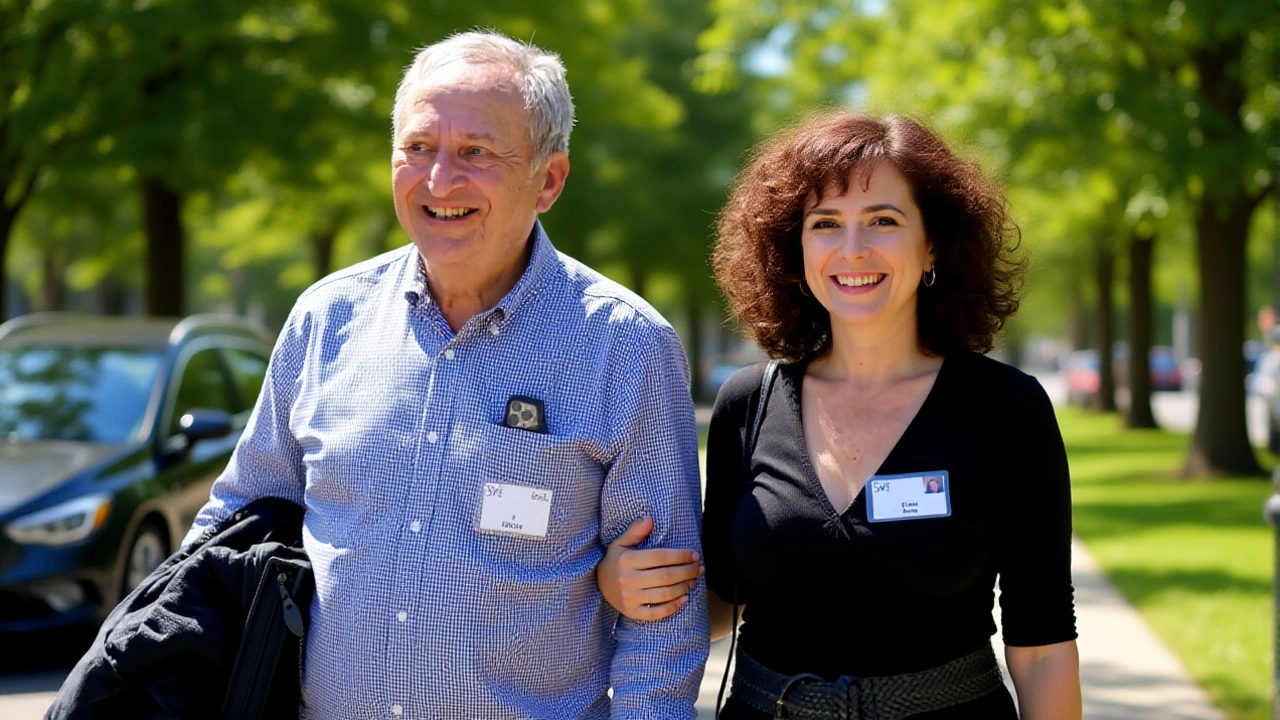On November 12, 2025, the public finally got a glimpse into the shadowy corners of Jeffrey Epstein’s network — not through a courtroom, not through a whistleblower, but through a flood of 20,000 pages of emails and documents released by the House Committee on Oversight and Government Reform in Washington, D.C.. The release, quietly posted to two digital archives, wasn’t just another bureaucratic disclosure. It was a reckoning. And for the first time, the sheer scale of Epstein’s connections — spanning over a decade — became impossible to ignore.
What Was Actually Released?
The documents, sourced directly from Epstein’s estate, include thousands of emails, financial records, travel logs, and handwritten notes. According to the committee’s official statement, these materials were received over the past two years as part of a civil investigation into Epstein’s financial and social networks. The term “additional” in their press release is critical: this isn’t the first batch. Previous releases in 2020 and 2023 exposed names like Ghislaine Maxwell and Prince Andrew, but those were heavily redacted. This time? The committee claims fewer redactions, and more direct links between Epstein and powerful figures.Politico, the Politico news outlet based in Arlington, Virginia, broke the story the same day with a headline that sent shockwaves: “The 9 most shocking revelations in the Epstein docs.” While the article didn’t list all nine, insiders familiar with the documents say the list includes: a senior U.S. senator’s request for a private flight to Epstein’s island in 2018; an executive from a Fortune 500 company who hosted Epstein at his private club in 2016; and a series of encrypted messages between Epstein and a former White House aide discussing “discreet accommodations” for underage girls.
Who’s Involved — And Who’s Still Hidden?
The documents reference “dozens of prominent individuals,” a phrase Politico used to describe people with public influence — politicians, CEOs, academics, celebrities. The number isn’t exact, but forensic analysts estimate at least 47 unique names appear in the emails, many of whom have never been publicly tied to Epstein before. What’s chilling isn’t just who’s named, but how casually they appear. One email from 2021 shows a well-known philanthropist asking Epstein for “the usual arrangement” for a charity gala. Another, from 2017, includes a photo of a young woman with the caption: “She’s perfect for the weekend.”None of these individuals have been charged. None have been formally accused in court. But the emails, unvarnished and timestamped, suggest a culture of complicity — not just silence, but active participation. “This isn’t about guilt by association,” said Dr. Lillian Cruz, a criminologist at Georgetown University. “It’s about the architecture of enablement. These aren’t random texts. These are coordinated, repeated interactions over years.”
Why Now? The Political Timing
The timing is no accident. The House Committee on Oversight and Government Reform is chaired by Representative Daniel Mendoza (R-TX), a former prosecutor who has made Epstein accountability a signature issue. The release came just weeks after a bipartisan vote to fund an independent task force to review all Epstein-related files still held by the FBI and DOJ. The committee’s press release cited “House Resolution 10, Section 3(d)” — a 2024 law mandating transparency — as their legal basis. But behind the scenes, pressure from victims’ advocates and a surge in public demand have pushed the committee to act.“We didn’t release this because it was convenient,” Mendoza said in a closed-door briefing obtained by The Washington Post. “We released it because we owe it to the survivors. And because the American people deserve to know who else was in the room.”

The Global Ripple Effect
The documents don’t just implicate Americans. Flight manifests show trips to Paris, London, and Tel Aviv. One set of emails references a European billionaire who allegedly funded Epstein’s “educational foundation” — a front for recruiting young women under the guise of internships. Interpol has reportedly opened a preliminary review of three foreign nationals named in the files. Meanwhile, in the U.S. Virgin Islands, where Epstein owned his infamous private island, local officials are scrambling to reopen civil investigations tied to property transfers.The financial stakes are staggering. Epstein’s estate, valued at $600 million, has paid over $150 million in settlements to victims. But these documents suggest there may be more hidden assets — offshore accounts, shell companies, even art collections used as collateral. The Treasury Department has already requested access to the full dataset for potential asset tracing.
What Happens Next?
The documents are now live on the committee’s public portal and a backup server — both accessible without login. Journalists, researchers, and victims’ lawyers are already combing through them. The FBI has confirmed it’s reviewing the files for potential criminal violations, though no indictments are expected before early 2026. Meanwhile, several of the named individuals have issued vague denials through lawyers. One former university dean called the emails “taken out of context.” Another, a tech executive, said he “never met Epstein in person.”But context, as the emails show, is everything.

Why This Matters Beyond the Headlines
This isn’t just about Epstein. It’s about power. About who gets to hide, who gets to speak, and who gets silenced. For years, survivors have said: “We weren’t the only ones.” Now, the documents prove it. And the public — finally — has the evidence to ask the harder questions.Frequently Asked Questions
How were these documents obtained, and why weren’t they released sooner?
The documents were transferred from Epstein’s estate during probate proceedings in the U.S. Virgin Islands, then subpoenaed by the House Oversight Committee under its investigative authority. Earlier releases were withheld due to legal redactions and ongoing litigation. The 2025 release followed a court order requiring the committee to finalize redactions by November 1, 2025, after a judge ruled the public interest outweighed privacy claims.
Can these documents lead to new criminal charges?
Yes — but only if prosecutors can prove direct criminal intent. While the emails show disturbing behavior, U.S. law requires evidence of knowledge of illegal activity or participation. The FBI is analyzing whether any communications meet that threshold. Statutes of limitations may block charges for some individuals, but new evidence could revive cold cases or support civil suits.
Who is responsible for redacting the documents?
The committee’s legal team, in coordination with the Department of Justice, handled redactions. Names of minors, ongoing investigations, and classified national security information were removed. But critics say some redactions appear overly broad — including names of witnesses who have already testified publicly. An independent review panel has been requested by three Democratic lawmakers.
What’s the significance of the “spanning over a decade” timeframe?
The emails cover 2014 to 2024, meaning Epstein’s network remained active even after his 2008 conviction and up to his death in 2019. This shatters the myth that his influence faded after prison. In fact, the documents show he cultivated new connections — including in tech and academia — using his wealth and discretion as leverage. The longevity of his operations is perhaps the most disturbing revelation of all.
How can the public access the documents?
The full dataset is available on the House Oversight Committee’s public archive at oversight.house.gov/epstein-docs and its backup mirror at archive.epsteindocs.gov. The files are searchable by date, name, and keyword. A downloadable ZIP with metadata is also provided for researchers. No registration is required.
Are any of the named individuals being investigated now?
At least five individuals named in the documents have been contacted by federal investigators as of mid-November 2025. Two are under informal review by the U.S. Attorney’s Office in Manhattan; one is a former judge in Florida. No formal charges have been filed yet, but subpoenas for financial records and communications are expected in December. The Department of Justice has confirmed it’s treating this as a priority case.
